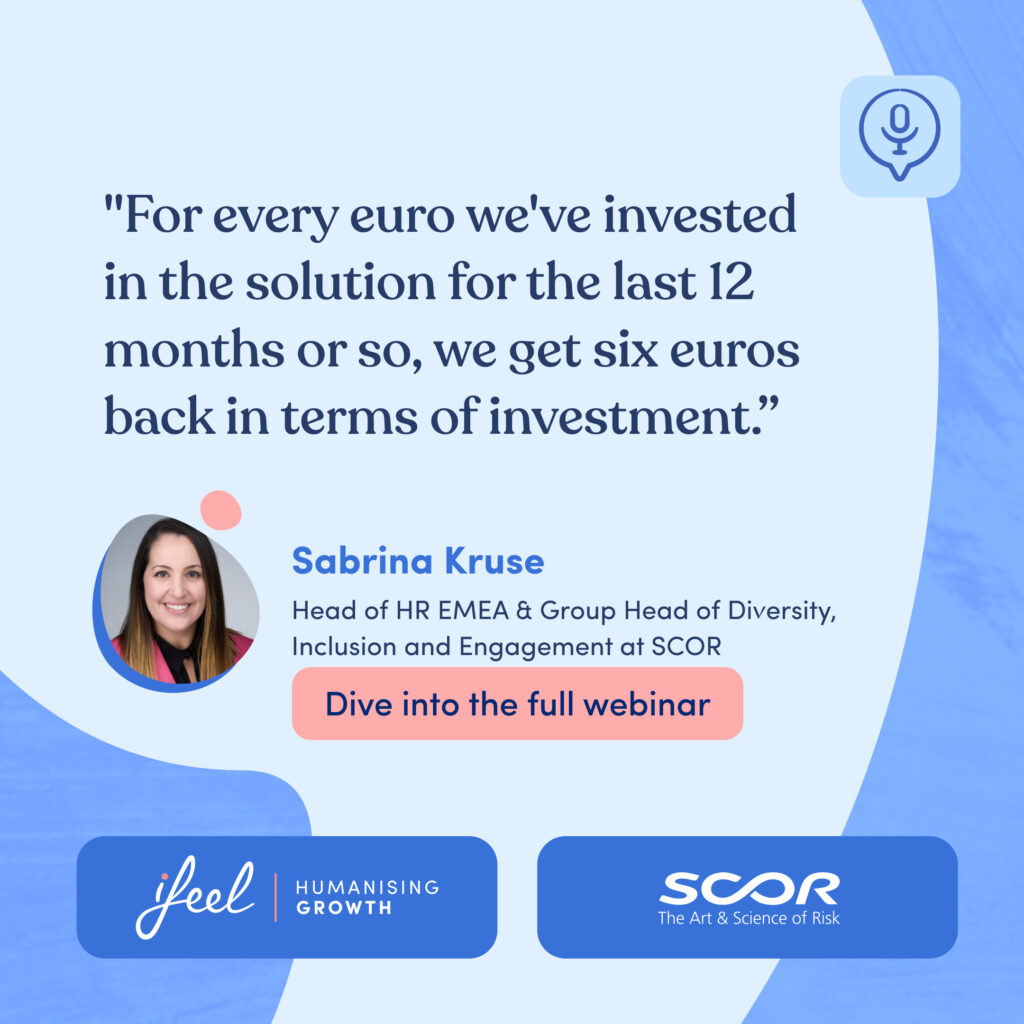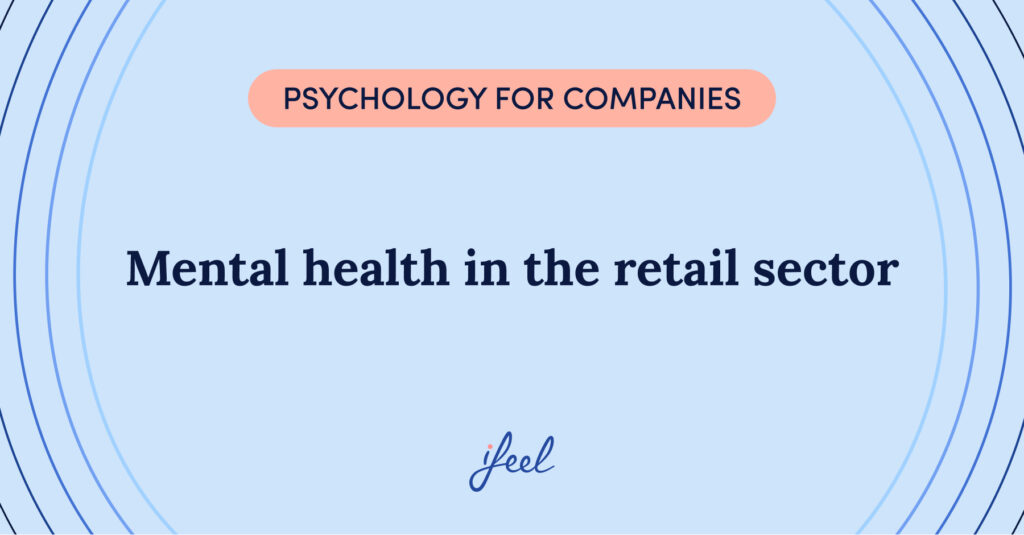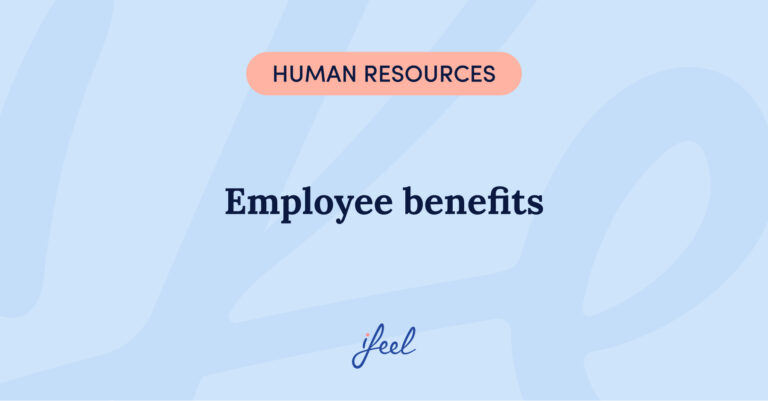The retail sector is one of the most dynamic and competitive in the world, but also one of the most challenging for its employees. From front-line workers to operational teams, everyone faces constant pressure: irregular hours, the demand to provide impeccable customer service, and in many cases, physically demanding work environments.
These factors not only affect employee mental health, but also have a direct impact on companies’ financial results. Absenteeism, staff turnover, and decreased productivity are just some of the problems that arise when mental health is not prioritised in this sector.
In this article, we will explore why caring for mental health in the retail sector is not only an ethical issue, but a strategic necessity to avoid significant economic losses. In addition, we will show you how ifeel, with its data-driven approach and personalised solutions, can be the key to transforming your organisation.
The cost of ignoring mental health in the retail sector
The retail sector is an industry that relies heavily on its human capital. Employees in this sector are the face of brands, and therefore, their emotional and mental well-being directly influences the customer experience and operational efficiency. However, the challenges inherent in the sector have led to alarming figures:
- 75% of employees believe that their workplace contributes to mental health problems.
- 52% have considered quitting because of these problems.
- In 2024, 23% of employees reported absences related to mental health.
And, of course, these problems not only affect employees, but also generate significant costs for companies due to:
- Absenteeism: Sick leave due to mental health problems disrupts daily activities, forcing companies to cover shifts with additional staff or to operate with fewer resources.
- Turnover: Stress and anxiety lead to high turnover, which implies recruitment and training costs and a loss of institutional knowledge.
- Decreased productivity: Employees who work under constant stress are less productive, which directly affects revenue and service quality.
In an industry where profit margins are tight, these costs can mean the difference between success and failure. Add to this the unique challenges of each company, and the picture can become even more complex and difficult to manage.
The fact is that every organisation in the retail sector faces unique challenges that require customised solutions. Factors such as team dynamics, seasonal peaks in demand or critical incidents require a proactive approach tailored to their specific needs.
However, traditional solutions, such as Employee Assistance Programmes (EAPs), have proven to be insufficient. With low adoption rates and a reactive approach, they fail to prevent or comprehensively address mental health issues. Discover all the details in our comparative study between ifeel and EAPs. Download it now and explore how ifeel can transform mental health in your organisation.
Therefore, investing in advanced tools that integrate technology, data analysis and personalised care is essential to ensure operational and financial sustainability in such a competitive market.
ifeel: The imperative solution for the retail sector
In this context, ifeel positions itself as an innovative and effective solution to address mental health challenges in the retail sector. Through a data-driven approach, artificial intelligence, and personalised care, ifeel helps companies improve the well-being of their employees while optimising their financial results.
What does ifeel offer?
- Real-time risk assessment:
ifeel uses advanced analytics tools to identify levels of mental health risk among employees. This enables companies to anticipate problems before they escalate into crises.
2. Personalised plans for each employee:
Through a clinical triage system, employees are classified into risk levels (high, medium and low) and receive interventions tailored to their needs:
- Low risk: Psychoeducational content and workshops tailored to the issues faced by companies.
- Medium risk: Text or video therapy to acquire coping tools.
- High risk: Video therapy with specialised clinical psychologists to offer personalised sessions.
3. Insights for informed decision-making:
ifeel provides companies with a dynamic dashboard with real-time data on the mental health of their workforce. This includes seasonal stress patterns, critical areas within the organisation, and the financial impact of interventions.
4. Measurable results:
Companies that implement ifeel have reported tangible results that directly impact their operational and financial sustainability:
- Reduction in absenteeism.
- Improved productivity.
- Significant ROI in a short period of time.
These results are measured using advanced analysis tools that allow key indicators to be evaluated, such as the reduction in sick leave, the improvement in employee risk levels and the financial impact generated by interventions.
Why is ifeel the right fit for the retail sector?
The retail sector, with its fast-paced nature and high reliance on human capital, requires solutions that are scalable, efficient, and effective in addressing the unique challenges faced by its employees. ifeel is perfectly suited to these needs, providing tools specifically designed to manage the mental health of large workforces efficiently, without compromising on service quality or the personalisation of interventions.
| Advantage | Description |
| Scalability | Ideal for companies with thousands of employees spread across multiple locations. |
| Speed | Diagnosis in less than 24 hours and access to therapy in less than 48 hours. |
| Confidentiality | Employees can access services anonymously, even without a corporate email address. |
Success story: Organisational transformation in the retail sector
A leading European retail company was facing significant challenges: high levels of absenteeism, turnover and work-related stress, exacerbated by critical incidents such as frequent thefts. Aware that these problems were affecting both the well-being of its employees and its financial results, the company decided to implement the ifeel solution.
Key results
- 20% reduction in costs related to mental health.
- Average savings of €4,098 per employee at risk.
- 4x ROI in just six months.
- 33% of employees reduced their risk level, improving their well-being and productivity.
In addition, the company managed to transform its organisational culture, normalising conversations about mental health and empowering its managers with tools to support their teams.
This case study demonstrates that investing in mental health is not only an ethical decision, but also a key strategy for reducing costs and improving performance in the retail sector.
Download the full case study and discover how ifeel can help you transform your organisation.

Mental health at work: one of the biggest challenges of our time
The retail sector cannot afford to ignore its employees’ mental health. The costs associated with absenteeism, turnover and low productivity are too high, and traditional solutions are no longer sufficient.
ifeel offers an innovative alternative, based on data and measurable results, which not only improves employee well-being but also generates tangible benefits for businesses.
If your organisation faces similar challenges, don’t wait any longer. Download our case study and discover how ifeel can be the strategic partner you need to transform your business.











